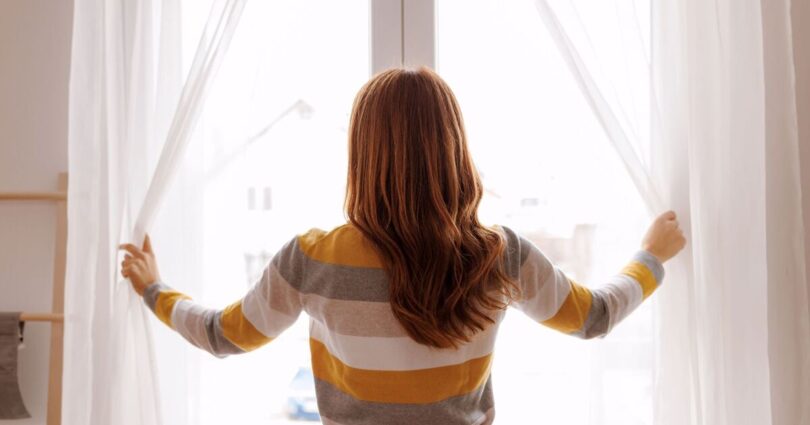The 5am wake-up trend has been making waves on social media, with countless users touting its productivity perks. However, experts warn this practice isn’t all it’s hyped up to be – and could even be detrimental to your brain health.
Neuroscientist Rachel Barr recently took to TikTok (@drrachelbarr) to question the supposed ‘benefits’ of rising before the sun each day. She pointed out that while you can set an alarm for a specific time, your body might not be ready to start at that hour, potentially leading to issues.
« Is it true that waking up at 5am every morning will help you to get the best out of your brain? », she asked. « …We’re often told that the key to productivity and success is early rising, but it’s not just your alarm that decides when you and your brain properly wake up, it’s also your body. »
At the heart of this issue is our individual internal clock, also known as a ‘circadian rhythm’, which dictates our hunger, sleepiness, and alertness levels. While light and darkness have the greatest influence on this, a ‘big portion’ is determined by genetics.
« If you have the genetic profile of a night owl it means you sleep and wake a little bit later and 5am is probably not going to cut it, » Rachel continued in the video from last year. « Not only does that mean that night owls tend to be more productive later in the day, it also means that if you’re getting up at 5am, you run the risk of losing most of your REM sleep. »
REM – rapid eye movement – is one of the five stages we go through when we sleep. This stage, which usually occurs later in the night, sees an increase in brain activity as it participates in the body’s ‘cleansing process’.
Remove this, and you may be meddling with your cognitive well-being, warn experts. A 2016 study highlighted this risk, pointing out an increased incidence of dementia among those with disturbed sleep patterns.
Further research from this year also found that people with Alzheimer’s were more likely to experience a delayed period of ‘REM sleep’. Other individuals who entered REM more than 98 minutes after dozing off showed elevated levels of toxic proteins too.
This refers to 29% more ‘tau’ and 16% more ‘amyloid’, both associated with a worsened risk of Alzheimer’s disease. In light of such trends, Rosey Davidson, sleep consultant at Just Chill Baby Sleep, previously told the Mirror: « Chronic sleep deprivation affects memory, decision-making, and mood. It also increases the risk of mental health issues, such as depression and anxiety, and can cause diseases.
« Getting a good amount of sleep has amazing benefits for the brain. It enhances memories, improves mood regulation, and supports overall mental health. Sleep also facilitates the brain’s cleansing process, removing toxins that accumulate during waking hours. During sleep, the brain clears out beta-amyloid, a protein associated with Alzheimer’s. »
Rosey suggests that the ‘optimal time to rise’ varies from individual to individual. If you find it challenging to wake up at 5am, this routine may not be the best fit for you.
She continued: « Some people naturally feel more energetic and alert in the morning, while others peak in productivity later in the day. For ‘night owls,’ it is a really bad idea to try to join the ‘5am club.’
« You cannot force yourself to function at your best if you are working against your biology. You will likely continue to stay up later in the evening, and build up a sleep debt, rather than create more hours in the day to be productive. A lack of sleep can have severe consequences for the brain.
« While we can be equipped with the knowledge around how important sleep is, it is important not to stress over it. It will never be ‘perfect,’ and we will always have lifestyle factors affecting it, that may be out of our control.
« What we can do is choose to prioritise the window of sleep that we have – being mindful of wind down times, relaxing and creating an environment and routine that supports our sleep. »
Source link








